New Scientist covers the latest developments in science and technology that will impact your world. New Scientist employs and commissions the best writers in their fields from all over the world. Our editorial team provide cutting-edge news, award-winning features and reports, written in concise and clear language that puts discoveries and advances in the context of everyday life today and in the future.
Elsewhere on New Scientist
A note from the culture editor
A greener tomorrow, today • We have the technologies to make a net-zero world. Now we must put them in place
New Scientist
Melting glaciers may spread viruses
Hurricane Ida climate link • The storm, which has killed at least one person and left millions without power, was made worse by climate change, reports Adam Vaughan
Waves in space-time could let us see if gravity is quantum
US opioid use spiked in the early months of the pandemic
Martian cave entrances could be friendly for life
Woman loses ability to feel hungry • A stroke in a mysterious brain area reveals its potential role in controlling how much we eat
Where did covid-19 come from? • Scientists call for urgent investigation into the coronavirus’s probable origin in animals
Efforts to domesticate African baobab trees are bearing fruit
Marsupials reintroduced • The brush-tailed bettong is returning to the Australian mainland
Cosmic rays from an ‘ordinary’ star explosion
UK ends guidance to adjust kidney tests based on ethnicity
Cryptocurrency • Will PayPal make bitcoin more mainstream? The company now allows cryptocurrency sales in the UK, but there are still hurdles to its everyday use, reports Matthew Sparkes
Antibiotic resistance tracked in wild bears’ tooth plaque
China’s lockdowns caused early spring
Gene discovery may help endometriosis
Really brief
Gel could help treat damaged joints
Did humans meet mysterious Denisovans in Indonesia?
Caterpillars hit by light pollution
Better alternatives • The UK is considering opening a brand new coal mine. Here’s why it doesn’t need one, says Mark Peplow
This changes everything • What ancient money tells us about the future The way that some of the first coins were viewed 2500 years ago is similar to how we regard computers today, writes Annalee Newitz
Editor’s pick
A team effort • The International Space Station is a marvel to behold and a new documentary speaks to those who have lived on board, finds Abigail Beall
Scientifically telling • How our brains respond to different stories makes for fascinating reading, finds Simon Ings
Don’t miss
The sci-fi column • A multi-timelined epic Monica Byrne’s fantastic second novel follows three storylines in the past, present and future, all of which are linked by historical threads and religious ideas, says Michael Marshall
New Scientist Photography Awards 2021
A DAY IN A NET-ZERO LIFE
THE GLOBAL NET-ZERO VIEW
Out of spite • The dark side of human nature has some unexpected upsides, says Simon McCarthy-Jones
A mean streak?
Illuminating consciousness • A fulfilling explanation for how physical matter gives rise to conscious experience is beginning to come to light, says neuroscientist Anil Seth
Theories of consciousness
Finding the ice giants • It will soon be a good time to spot Neptune and Uranus, thanks to opportune positions in their orbits, says Abigail Beall
Puzzles
Almost the last word
Tom Gauld for New Scientist
Feedback
Twisteddoodles for New Scientist

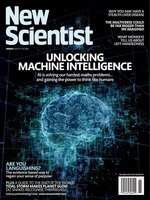 Apr 13 2024
Apr 13 2024
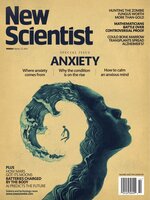 Apr 06 2024
Apr 06 2024
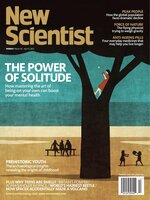 Mar 30 2024
Mar 30 2024
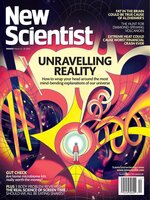 Mar 23 2024
Mar 23 2024
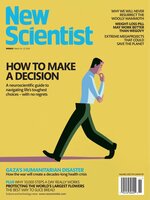 Mar 16 2024
Mar 16 2024
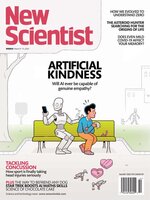 Mar 09 2024
Mar 09 2024
 Mar 02 2024
Mar 02 2024
 Feb 24 2024
Feb 24 2024
 Feb 17 2024
Feb 17 2024
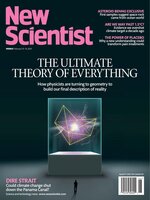 10 Feburary 2024
10 Feburary 2024
 Feb 03 2024
Feb 03 2024
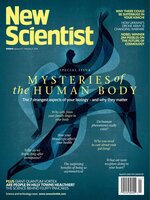 Jan 27 2024
Jan 27 2024
 Jan 20 2024
Jan 20 2024
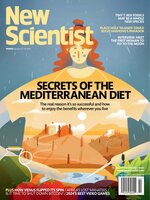 Jan 13 2024
Jan 13 2024
 Jan 06 2024
Jan 06 2024
 Dec 30 2023
Dec 30 2023
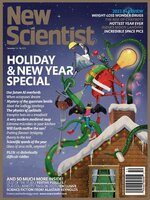 Dec 16 2023
Dec 16 2023
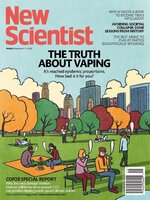 Dec 09 2023
Dec 09 2023
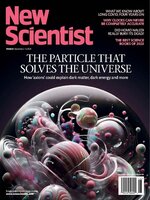 Dec 02 2023
Dec 02 2023
 Nov 25 2023
Nov 25 2023
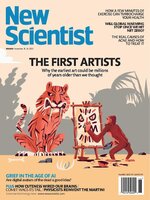 Nov 18 2023
Nov 18 2023
 Nov 11 2023
Nov 11 2023
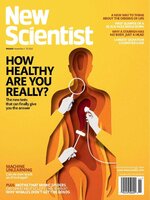 Nov 04 2023
Nov 04 2023
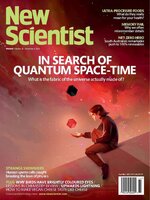 Oct 28 2023
Oct 28 2023
